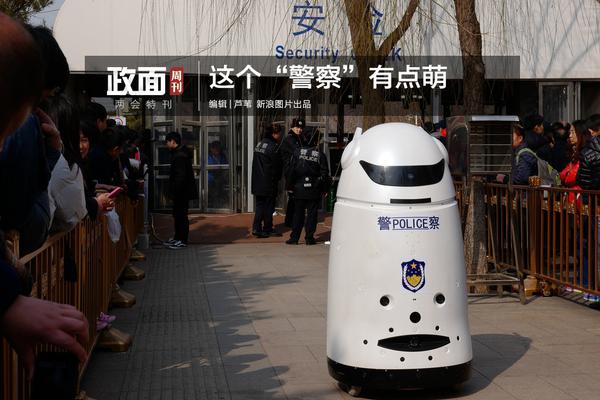
System error, also known as measurable error, is caused by some common causes in the process of analysis operation.
Random error: It is a mutually compensated error formed by a series of small random fluctuations of relevant factors in the measurement process. System error: refers to a non-random error. For example, the bias error that violates the random principle, the error caused by the registration record in the sampling, etc.
System error: also known as regular error, because its size and symbol do not change or change according to a certain law. Its main feature is that it is easy to eliminate or correct accidental error: also known as random error, because its appearance is completely random.
1. System error is caused by some imperfections of the instrument, limited measurement technology or insufficient experimental methods to ensure the correct experimental conditions and other reasons. For example, when the time of measuring the meter is stopped, the stop meter is inaccurate and slow. , the time interval of the measurement is always small. The random error is characterized by its randomness.
2. Accidental error: the error caused by the inaccuracy of the observer's reading. Features: Measurement results are large and small. System error: errors caused by inaccurate measuring instruments and imperfect experimental principles.
3. System error refers to a non-random error. For example, the bias error that violates the random principle, the error caused by the registration record in the sampling, etc. It makes the overall characteristic value too high or too low in the sample.
Finiteness: Under certain observation conditions, the absolute value of the accidental error will not exceed a certain limit. ( 2) Concentration: that is, the error with a smaller absolute value is more likely to occur than the error with a larger absolute value. ( 3) Symmetry: The probability of positive errors and negative errors with equal absolute values is the same.
Adventional error is also known as random error. The main differences from system error are as follows: different causes of occurrence. Random error: the reason for its occurrence is the influence of various unstable random factors in the analysis process, such as the instability of environmental conditions such as room temperature, relative humidity and air pressure.
The difference between system error and accidental error is that system error is inevitable.Free (but can be reduced by balancing friction and other methods), and accidental errors can be avoided by multiple measurements. System error refers to the inevitable error during the experiment. Accidental error refers to avoidable errors such as experimental operation errors.
Random error: refers to under the same conditions, due to various unpredictable accidental factors, different types of measured values of the same physical quantity are measured multiple times. Different degrees of error are called random error, also known as accidental error. System error: refers to a non-random error.
The main difference is that it has different properties, different causes and different characteristics, as follows: different properties, accidental error, accidental error generally refers to random error, which is a mutually compensated error formed by a series of small random fluctuations of relevant factors in the measurement process.
The difference between system error and accidental error is that unified error is inevitable, and accidental error can be avoided by multiple measurements. System error refers to the inevitable error during the experiment, and accidental error refers to the man-made and avoidable errors such as experimental operation errors. Error is an experimental scientific term, which refers to the degree to which the measurement results deviate from the true value.
System error: inevitable errors in experiments, such as frictional resistance, air resistance, and errors of the experiment itself, such as constant voltage when using power supply. Accidental error: measurement error, experimental operation error and other man-made and avoidable errors.
The system error is caused by some of the instrumentImprovement, limitation of measurement technology or insufficient experimental methods and failure to ensure correct experimental conditions occur. For example, when stopping the meter to measure the time, the stop table is inaccurate and slow, and the time interval of the measurement is always small. The accidental error is characterized by its randomness.
System error: Maintaining a constant or its change in the same measurement process is part of the predictable measurement error. Accidental error: the measurement error in the sequence of measured values under the same measurement conditions is uncertain, but subject to certain statistical laws.
System error is a kind of error caused by certain fixed causes in the analysis process. It is repetitive, one-way and measurable. That is, under the same conditions, it will appear repeatedly when the measurement is repeated, so that the system of the measurement results is high or low, and its numerical size also has a certain regularity.
Adventional error is also known as random error. The main differences from system error are as follows: different causes of occurrence. Random error: the reason for its occurrence is the influence of various unstable random factors in the analysis process, such as the instability of environmental conditions such as room temperature, relative humidity and air pressure.

1. The main difference is that it has different properties, different causes and different characteristics, as follows: different properties, accidental error. Accidental error generally refers to random error, which is formed by a series of small random fluctuations of relevant factors in the measurement process. The error of mutual compensation.
2. Different characteristics, system error, repeatability, one-way, measurability.
3. Random error is also known as random error. The main differences from system error are as follows: different causes Random error: the reason for its occurrence is the influence of various unstable random factors in the analysis process, such as the instability of environmental conditions such as room temperature, relative humidity and air pressure.
OKX Wallet app download for Android-APP, download it now, new users will receive a novice gift pack.
System error, also known as measurable error, is caused by some common causes in the process of analysis operation.
Random error: It is a mutually compensated error formed by a series of small random fluctuations of relevant factors in the measurement process. System error: refers to a non-random error. For example, the bias error that violates the random principle, the error caused by the registration record in the sampling, etc.
System error: also known as regular error, because its size and symbol do not change or change according to a certain law. Its main feature is that it is easy to eliminate or correct accidental error: also known as random error, because its appearance is completely random.
1. System error is caused by some imperfections of the instrument, limited measurement technology or insufficient experimental methods to ensure the correct experimental conditions and other reasons. For example, when the time of measuring the meter is stopped, the stop meter is inaccurate and slow. , the time interval of the measurement is always small. The random error is characterized by its randomness.
2. Accidental error: the error caused by the inaccuracy of the observer's reading. Features: Measurement results are large and small. System error: errors caused by inaccurate measuring instruments and imperfect experimental principles.
3. System error refers to a non-random error. For example, the bias error that violates the random principle, the error caused by the registration record in the sampling, etc. It makes the overall characteristic value too high or too low in the sample.
Finiteness: Under certain observation conditions, the absolute value of the accidental error will not exceed a certain limit. ( 2) Concentration: that is, the error with a smaller absolute value is more likely to occur than the error with a larger absolute value. ( 3) Symmetry: The probability of positive errors and negative errors with equal absolute values is the same.
Adventional error is also known as random error. The main differences from system error are as follows: different causes of occurrence. Random error: the reason for its occurrence is the influence of various unstable random factors in the analysis process, such as the instability of environmental conditions such as room temperature, relative humidity and air pressure.
The difference between system error and accidental error is that system error is inevitable.Free (but can be reduced by balancing friction and other methods), and accidental errors can be avoided by multiple measurements. System error refers to the inevitable error during the experiment. Accidental error refers to avoidable errors such as experimental operation errors.
Random error: refers to under the same conditions, due to various unpredictable accidental factors, different types of measured values of the same physical quantity are measured multiple times. Different degrees of error are called random error, also known as accidental error. System error: refers to a non-random error.
The main difference is that it has different properties, different causes and different characteristics, as follows: different properties, accidental error, accidental error generally refers to random error, which is a mutually compensated error formed by a series of small random fluctuations of relevant factors in the measurement process.
The difference between system error and accidental error is that unified error is inevitable, and accidental error can be avoided by multiple measurements. System error refers to the inevitable error during the experiment, and accidental error refers to the man-made and avoidable errors such as experimental operation errors. Error is an experimental scientific term, which refers to the degree to which the measurement results deviate from the true value.
System error: inevitable errors in experiments, such as frictional resistance, air resistance, and errors of the experiment itself, such as constant voltage when using power supply. Accidental error: measurement error, experimental operation error and other man-made and avoidable errors.
The system error is caused by some of the instrumentImprovement, limitation of measurement technology or insufficient experimental methods and failure to ensure correct experimental conditions occur. For example, when stopping the meter to measure the time, the stop table is inaccurate and slow, and the time interval of the measurement is always small. The accidental error is characterized by its randomness.
System error: Maintaining a constant or its change in the same measurement process is part of the predictable measurement error. Accidental error: the measurement error in the sequence of measured values under the same measurement conditions is uncertain, but subject to certain statistical laws.
System error is a kind of error caused by certain fixed causes in the analysis process. It is repetitive, one-way and measurable. That is, under the same conditions, it will appear repeatedly when the measurement is repeated, so that the system of the measurement results is high or low, and its numerical size also has a certain regularity.
Adventional error is also known as random error. The main differences from system error are as follows: different causes of occurrence. Random error: the reason for its occurrence is the influence of various unstable random factors in the analysis process, such as the instability of environmental conditions such as room temperature, relative humidity and air pressure.

1. The main difference is that it has different properties, different causes and different characteristics, as follows: different properties, accidental error. Accidental error generally refers to random error, which is formed by a series of small random fluctuations of relevant factors in the measurement process. The error of mutual compensation.
2. Different characteristics, system error, repeatability, one-way, measurability.
3. Random error is also known as random error. The main differences from system error are as follows: different causes Random error: the reason for its occurrence is the influence of various unstable random factors in the analysis process, such as the instability of environmental conditions such as room temperature, relative humidity and air pressure.
 Binance market
Binance market
728.92MB
Check OKX Wallet app
OKX Wallet app
173.37MB
Check Binance APK
Binance APK
372.28MB
Check Binance wikipedia
Binance wikipedia
363.95MB
Check Binance download APK
Binance download APK
537.45MB
Check OKX Wallet apk download
OKX Wallet apk download
827.68MB
Check OKX Wallet app
OKX Wallet app
111.92MB
Check OKX Wallet to exchange
OKX Wallet to exchange
198.46MB
Check Binance app
Binance app
257.82MB
Check Binance Download for PC
Binance Download for PC
395.58MB
Check OKX Wallet Sign up
OKX Wallet Sign up
192.23MB
Check Binance download APK
Binance download APK
885.54MB
Check Binance login App
Binance login App
159.76MB
Check Binance app
Binance app
595.72MB
Check OKX Wallet app
OKX Wallet app
527.91MB
Check OKX Wallet
OKX Wallet
157.37MB
Check Binance login
Binance login
812.35MB
Check Binance login
Binance login
839.29MB
Check Binance app
Binance app
235.79MB
Check Binance login
Binance login
893.56MB
Check OKX Wallet APK
OKX Wallet APK
997.82MB
Check Binance Download for PC Windows 10
Binance Download for PC Windows 10
124.38MB
Check Binance login App
Binance login App
329.81MB
Check Binance download
Binance download
851.61MB
Check Binance login App
Binance login App
342.88MB
Check Binance APK
Binance APK
118.36MB
Check Binance exchange
Binance exchange
652.57MB
Check OKX Wallet Sign up
OKX Wallet Sign up
357.24MB
Check Binance Download for PC Windows 10
Binance Download for PC Windows 10
117.15MB
Check OKX Wallet extension
OKX Wallet extension
299.49MB
Check Binance login
Binance login
911.42MB
Check Binance wikipedia
Binance wikipedia
136.28MB
Check OKX Wallet apk download latest version
OKX Wallet apk download latest version
641.75MB
Check Binance login App
Binance login App
262.59MB
Check Binance app
Binance app
317.86MB
Check Binance APK
Binance APK
687.81MB
Check
Scan to install
OKX Wallet app download for Android to discover more
Netizen comments More
871 莫予毒也网
2025-01-10 17:52 recommend
259 官场如戏网
2025-01-10 17:44 recommend
2956 成败得失网
2025-01-10 17:25 recommend
402 扬扬自得网
2025-01-10 16:44 recommend
73 谄上欺下网
2025-01-10 16:21 recommend